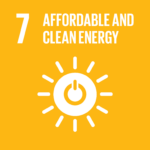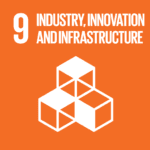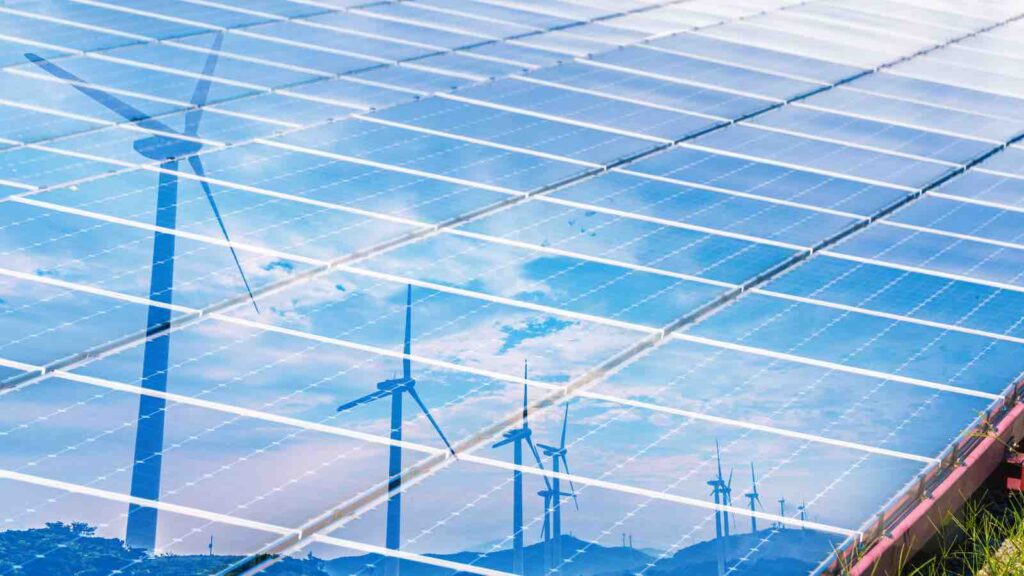With an initial investment targeting 400 MW of renewable energy capacity, the project will begin with a 300 MW portfolio in Karnataka, a state with strong solar and wind energy potential.
India’s renewable energy sector is set for a significant boost as CleanMax, a leading provider of clean energy solutions for the commercial and industrial (C&I) sector, partners with Osaka Gas Co. Ltd., one of Japan’s largest energy companies. This collaboration marks Osaka Gas’s first venture into India’s renewable energy market, signaling the increasing international investment in the country’s clean energy transition.
RELEVANT SUSTAINABLE GOALS




The partnership will operate under the newly formed Clean Max Osaka Gas Renewable Energy Private Limited (CORE), which will receive financial backing from Osaka Gas Singapore PTE. LTD. (OGS) and the Japan Bank for International Cooperation (JBIC), a government-backed financial institution.
With an initial investment targeting 400 MW of renewable energy capacity, the project will begin with a 300 MW portfolio in Karnataka, a state with strong solar and wind energy potential. Through long-term Corporate Power Purchase Agreements (PPAs), the initiative will provide businesses with affordable, reliable clean energy, accelerating their path toward decarbonization.
Accelerating India’s Net-Zero Goals
India has pledged to achieve 500 GW of non-fossil fuel capacity by 2030, and partnerships like this play a crucial rolein making that goal a reality. As industries face growing pressure to reduce carbon emissions, corporate demand for clean energy is rising sharply.
“This joint venture aligns seamlessly with our vision to enable corporate India to achieve its net-zero ambitions,” said Kuldeep Jain, Managing Director of CleanMax. “By partnering with Osaka Gas and JBIC, we can accelerate our growth and expand our reach among Japanese and multinational clients.”
Osaka Gas’s entry into the Indian market is part of its long-term sustainability strategy. Keiji Takemori, Executive Vice President of Osaka Gas, emphasized that the partnership will support India’s transition to renewable energy while allowing the Osaka Gas Group to contribute to global CO₂ reduction efforts.
The Role of Corporate PPAs in India’s Clean Energy Future
Corporate Power Purchase Agreements (PPAs) have emerged as a game-changer in renewable energy adoption. These long-term contracts allow businesses to purchase clean energy directly from developers, reducing dependence on fossil fuels and stabilizing electricity costs.
With companies facing rising energy costs and stricter carbon regulations, PPAs offer a cost-effective and scalable solution to secure renewable power.
Through CORE, CleanMax and Osaka Gas will help major corporations transition to low-carbon operations, setting a new benchmark for industrial clean energy adoption in India.
India’s C&I sector is one of the largest consumers of electricity, making it a critical player in the clean energy transition. As one of the fastest-growing economies, the country’s energy demand is set to double by 2040, increasing the urgency for sustainable energy solutions.
CleanMax has already deployed 2 GW of renewable energy assets across India, the Middle East, and Southeast Asia. Backed by Brookfield, a global asset manager, CleanMax has been at the forefront of innovative energy solutions, including rooftop solar installations and wind-solar hybrid farms.
What’s Next for Clean Energy in India?
As India moves toward its ambitious 2030 net-zero commitments, strategic collaborations like CleanMax and Osaka Gas will be instrumental in scaling renewable energy adoption in key industrial sectors.
With increasing foreign investments, technological innovation, and corporate sustainability commitments, India’s clean energy future is stronger than ever. The CleanMax-Osaka Gas partnership is just the beginning, paving the way for more global players to enter the country’s renewable energy market.
You may also be interested in :
Empowering Marginalised Communities Through Decentralised Renewable Energy, India Case



